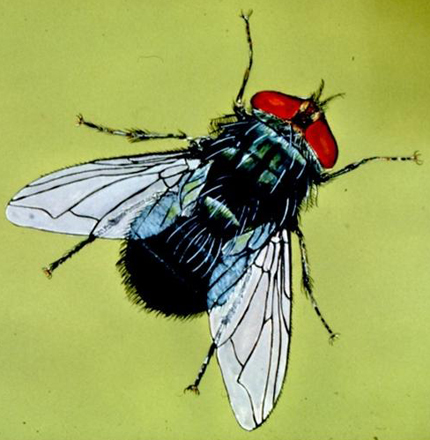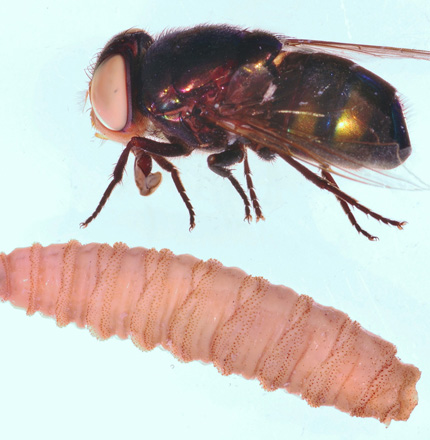The Screwworm- a Major threat to Florida UPDATED
UPDATED 1/11/17
The Florida Department of Agriculture has confirmed the first case of screwworms found on the Florida Mainland. A stray dog in Homestead was found to be infected with the parasite. It is the first time in more than 30 years that the screwworm has been identified on the Florida mainland. At this time, it is not known if the stray dog somehow found its way from the Keys to the mainland, or if the screwworms have spread further north. Authorities have checked and cleared more than 10,000 animals- including livestock- moving north from the Florida Keys to the mainland. The dog has received treatment and is said to be in good health following medical care.
So, what’s my take on this? We still need to be diligent. It took years to eradicate the screwworm infestation more than 30 years ago. We need to take this threat seriously- but not panic. Be aware of any sores or open wounds on your pet and make sure they are treated promptly. The threat is real, now that it has crossed from the Keys to the mainland. To date, there have only been 16 confirmed cases of screwworm infestations, with all but one of them coming from the Keys. We will keep you posted with any further updates as they become available.
Original Blog Below:
It has a funny-sounding name, this parasite. But the risks and dangers it poses are not funny at all. You may not have ever heard of the screwworm- because the United States Department of Agriculture worked to eradicate it decades ago. There had not been a report of screwworms since the mid 1980s in the United States- and since the 1960’s in Florida- until recently. In September of this year, Screwworm infestations have been found in the lower keys, mainly affecting the already endangered Key Deer population. However, the screwworm is an equal-opportunity parasite. It can quickly decimate livestock, wildlife and pets, and if left unchecked, can pose a real threat to ranchers and pet-owners alike.

OK, so what is a Screwworm?
The screwworm is actually the larvae of the Cochliomyia hominivorax, which is a small fly. The adult female lays their larvae in the wounds of warm blooded mammals. Their larvae (screwworms),much like maggots, feed on the flesh of animals. The big difference is the screwworm feeds on live flesh, and invades open wounds, whereas maggots feed on dead and decaying flesh.
Is my pet at risk?
At this time, the risk is extremely low. The screwworm outbreak has, as of this publication, been contained to the lower Florida Keys. However, veterinarians are concerned about the potential to spread- since it was a statewide problem before it was eradicated decades ago. Your risk increases if you travel with your pet regularly to the lower Keys, and even more so if your pet has any kind of open sores or wounds- no matter how small.
What is being done to stop the problem?
Decades ago, the USDA began using small doses of radiation on the male Cochliomyia hominivorax to sterilize them. Tens of millions of these sterile flies were released in problem areas on a monthly basis. The sterilized males would mate with the females, and- poof – the species could no longer sustain itself. This process is being repeated, but will take months, if not longer, to be fully effective.

How can this affect me both short and long-term?
If the spread of the screwworms is not stopped, there will be multiple effects. First, you will see a major increase in your grocery bill if you eat meat. Screwworms can devastate the livestock industry by depleting stocks, driving up the price of meat. Secondly, if you travel with your pets, there will most likely be travel restrictions- even just going from state to state. Currently, the state of Utah has enacted controls on bringing pets or livestock into their state from Monroe County, Florida. The state of Georgia is discussing similar measures- meaning you may need to have documentation from your veterinarian certifying your pet has been examined and deemed free from the screwworm. Right now, if you are simply traveling through the state of Georgia en route to another state, no health certificates are needed. If that changes, we’ll keep you posted.
Even though this problem is currently contained in the lower Keys, it is something that myself, as a veterinarian, am keeping a very close eye on. All it can take is one affected pet to make it to the mainland for the outbreak to go statewide. We’ll watch this closely and update you as to the latest news.
